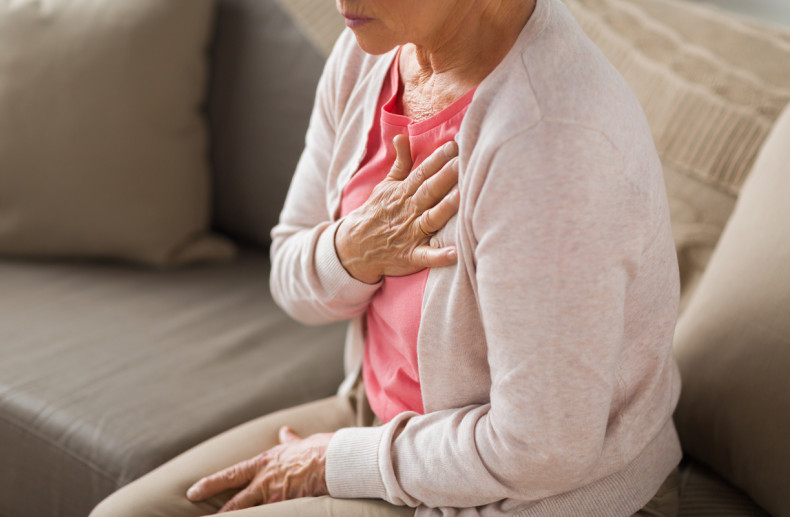Around 7.6 million people in the UK live with heart and circulatory diseases. The British Heart Foundation estimates that they cause around a quarter of all deaths in this country – one death every three minutes.
Heart disease can affect your health, quality of life, and longevity. Although heart disease can be deadly, there are effective medicines and surgical procedures to ease symptoms and treat heart problems. You can also protect your heart health by changing your lifestyle and having regular medical checks for diabetes, high cholesterol levels and hypertension.
What are the types of heart disease?
“The term heart disease covers a range of problems with the heart and circulatory system. Whereas cardiovascular disease is a term used to refer to heart problems that affect the blood vessels,” explains our consultant general and interventional cardiologist, Dr Wala Mattar.
Types of heart disease include:
- coronary artery disease (CAD): Narrowing or blockage of the blood vessels that supply blood and oxygen to the heart muscle. Coronary artery disease is caused by the furring up of the blood vessels or atherosclerosis. Also known as ischaemic heart disease, CAD can cause angina and lead to a heart attack
- heart valve disease: Valvular heart disease is a group of problems with one of the heart’s four valves that work to keep blood flowing in one direction
- cardiac arrhythmias: Heart rhythm abnormalities caused by disturbances to the heart’s electrical conduction system
- heart failure: When the heart cannot pump the oxygen-rich blood your organs, muscles and tissues need
- cardiomyopathy: Disease affecting the heart muscles, making them grow thick, weak, or hardened
- congenital heart defects: Abnormalities with the heart structure and function that are present at birth
- heart infections: A range of viruses, bacteria and parasites can infect the heart or its lining
Heart disease symptoms
The symptoms you experience with heart disease will depend on the type of disease you have and the severity of your condition.
This is a short overview of potential symptoms. Some people may notice different symptoms, and you can have significant heart disease and have no symptoms at all. See your doctor if you are experiencing worrying symptoms or are concerned about your heart health.
Coronary artery disease symptoms
Coronary artery disease causes angina and can lead to a heart attack. Symptoms of angina include:
- tight or heavy chest pain that may spread into your arm, jaw, neck or back. It typically comes on during exertion or when you’re under stress.
- breathlessness
- feeling weak and faint
- nausea
Angina pain usually settles when you rest for a few minutes. Heart attack symptoms don’t go away on resting. Act quickly by calling 999 if you notice:
- tight, heavy or crushing chest pain that can spread into the arms, neck, jaw or through to the back
- shortness of breath
- feeling clammy and getting cold sweats
- feeling weak and unwell
- nausea and sickness
- severe, overwhelming anxiety
Heart valve disease symptoms
Many people with valvular heart disease experience no symptoms. However, you may experience symptoms including:
- feeling dizzy or lightheaded
- tiredness
- weakness and low energy
- fainting
- palpitations-fast or fluttering heartbeat
- breathlessness
- coughing
- a feeling of anxiety, like a panic attack
Over time, valve problems can damage the heart causing heart failure and cardiac arrhythmias.
Cardiac arrhythmia symptoms
The symptoms you experience with your arrhythmia will depend on the type of rhythm disturbance. Your heart may beat too fast, too slowly or may skip beats. Symptoms include:
- palpitations – fluttering or racing heartbeat
- slow pulse
- skipping heartbeats
- feeling dizzy or lightheaded
- fainting
- chest pain
Heart failure symptoms
When your heart cannot pump effectively, fluid builds up in your lungs or around your body. This fluid accumulation causes symptoms including:
- breathlessness that is worse with exertion and when lying flat
- foot and ankle swelling. Fluid can also build up in your lower back and genitals, particularly if you have reduced mobility
- fatigue
- feeling weak with low energy
- coughing, sometimes with coughing up blood
Congenital heart defect symptoms
Several heart problems develop in an unborn child, including:
- valve abnormalities
- septal defects, known as a hole in the heart
- tresia or a missing valve
Serious structural problems may be identified on pregnancy ultrasound scans or immediately after birth . Some abnormalities never cause problems, some are found on routine medical checks, others may cause symptoms including:
- cyanosis: blue-tinged lips or skin
- swelling of the feet and ankles
- shortness of breath
- tiredness, low energy and low exercise tolerance
- irregular heart rhythm
Cardiomyopathy symptoms
There are several types of cardiomyopathy: Dilated cardiomyopathy leads to a weakened heart, hypertrophic cardiomyopathy in which the heart muscle is thickened and restrictive cardiomyopathy, in which the heart muscle is stiff. Symptoms of cardiomyopathy include:
- fatigue and low energy levels
- swelling of the ankles and feet and the lower back and genitals if you have poor mobility
- breathlessness
- fast, pounding or rapid heartbeat
Heart infection symptoms
Heart infections include infections of the heart muscle, called myocarditis, the inner surface of the heart and the valves, called endocarditis and infection of the heart lining, called pericarditis. Symptoms of a heart infection include:
- chest pain
- feeling generally unwell
- fever and chills
- breathlessness and coughing
- skin rash
What causes heart disease?
“Heart disease covers many diseases and conditions, each with different causes and risk factors. Some people are born with structural heart abnormalities or may develop heart disease because of other medical or hormonal problems,” explains Dr Mattar.
The risk factors for heart disease include:
- getting older – heart and circulatory diseases are more common in the elderly
- gender – heart disease is more common in men and women after the menopause
- hypertension
- family history of heart problems
- ethnicity- heart disease is more common in people of black African, African Caribbean and South Asian origin
- high cholesterol, especially raised LDL cholesterol
- diabetes
- smoking
- obesity and overweight
- not exercising regularly
Heart disease treatments
“The right treatment for your heart disease will depend on your condition and its severity. Specific heart problems will need particular therapies,” explains Dr Mattar.
“For example, the cardiac infection bacterial endocarditis will require antibiotic treatment, and atrial fibrillation due to thyroid disease will need treatment to correct the hormone disturbance.”
Covering every treatment is beyond the scope of this article, but in general, heart disease treatments fit into three different categories:
- Lifestyle changes
- Medical management with drugs
- Surgery or minimally invasive interventions
Lifestyle changes

Regular exercise can help with your heart health
“You can’t control some of the risk factors for heart disease, like your genetic heritage and ethnicity. However, making lifestyle changes can reduce your risk of developing heart disease and prevent it from getting worse,” explains Dr Mattar.
Lifestyle changes that can help your heart health include:
- giving up smoking
- living an active life and exercising regularly
- losing weight if you are overweight or obese
- eating a healthy and balanced diet. Try and avoid processed foods and foods that are high in saturated fats and salt
- find ways to manage stress in your life
- taking medication and having regular check-ups to keep medical conditions like hypertension, high cholesterol and diabetes under control
It can be challenging to lose weight and embrace a healthier lifestyle, but even small steps can make a difference. Talk to your doctor about the changes you can make that will make the most difference for your health and your heart.
Medications for heart disease
“There are many medications to ease symptoms, treat heart disease, protect your heart and prevent complications from developing. Your doctor will prescribe medication or a combination of drugs depending on your heart disease type,” explains Dr Mattar.
Medications include:
- ACE inhibitors (angiotensin-converting enzyme inhibitors) for hypertension and coronary artery disease
- angiotensin-II antagonists/Angiotensin receptor-blockers (ARBs) for hypertension
- ARNi (angiotensin-II receptor-neprilysin inhibitor) for heart failure
- antiarrhythmic medicines to control abnormal rhythms
- anticoagulants or blood thinners to prevent thrombosis
- antiplatelet medicines to prevent thrombosis
- beta-blockers for hypertension and angina
- calcium channel blockers for hypertension and coronary artery disease
- drugs to reduce cholesterol, such as statins
- digoxin for atrial fibrillation
- diuretics to remove excess water from the body
- nitrates to open up the blood vessels and treat angina.
Heart disease surgery and minimally invasive procedures
“In some types of heart disease, an operation, transcatheter or minimally-invasive procedure is needed to treat the problem, prevent symptoms and protect the heart from damage,” explains Dr Mattar.
Some of the treatment options include:
- coronary bypass surgery for coronary artery disease
- angioplasty and stent insertion for coronary artery disease
- coronary sinus reduction for refractory angina due to coronary artery disease
- pacemakers and implantable cardioverter defibrillators or ICDs for cardiac arrhythmias and heart failure
- cardiac ablation for cardiac arrhythmias
- surgical valve replacement for heart valve disease
- heart valve repair for heart valve disease
- minimally-invasive aortic valve replacement or TAVI for aortic stenosis
- surgery to repair and treat congenital heart defects
Related content
-
Coronary heart disease
Coronary heart disease is caused by the narrowing of the coronary arteries that supply the heart muscle with oxygen-rich blood.
-
Cardiac arrhythmia (abnormal heart rhythm)
Cardiac arrhythmia is an abnormal heart rhythm, where the heart’s normal rhythm is disrupted.
-
Valvular heart disease
Heart valve disease occurs when the valves of the heart become diseased or damaged.
-
Heart failure
Heart failure occurs when the heart stops being able to pump blood around the body in an efficient way.
-
Inherited cardiac conditions
Inherited cardiac conditions are a group of genetic disorders that affect the heart and major vessels.
-
Congenital heart disease
Congenital heart disease is a collective term for a range of birth defects that affect the heart. Learn more about how it is diagnosed and treated.
-
Coronary artery bypass grafting (CABG)
CABG bypasses the narrowed sections of your arteries to improve blood flow.
-
Pacemakers and implantable defibrillators (ICDs)
Pacemakers and ICDs are different types of implanted electronic devices that are capable of regulating heart rhythm disturbances.
-
Cardiac ablation
Cardiac ablation is an advanced procedure used to treat irregular and fast heart rhythms.
-
Valve repair or replacement
Heart valve surgery can repair or replace a damaged valve.

